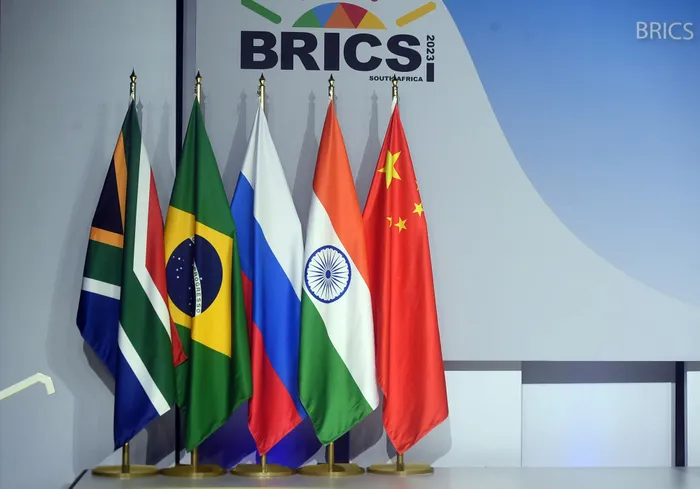Why India, China have vested interest in BRICS

The writer says the focus is usually on India and China when it comes to BRICS rivalry. Picture: Itumeleng English/African News Agency (ANA)
Siyabonga Hadebe
Pretoria - When it comes to rivalry between the BRICS members, the focus is usually on India and China.
Besides a 1996 agreement between the neighbours, which prohibited the use of guns and explosives along the disputed western Himalayan border area, troops from the two countries occasionally exchange fire. For example, a military standoff in January 2021 resulted in injuries to soldiers on both sides. It occurred near India’s Sikkim state, which is located between Bhutan and Nepal.
Tensions between India and China worsened after a deadly Aksai Chin-Ladakh clash in 2020 and a brawl at India’s north-eastern territory of Arunachal Pradesh in December 2022.
While Beijing and New Delhi reportedly committed to intensifying efforts to de-escalate tensions at their contested border, it is reported that the tensions endure in BRICS. However, there has been little focus on Russia and China, who always present a united front in BRICS and on other international platforms despite their historical incompatibilities. This unity can be attributed to various factors, including shared geopolitical interests and a desire to counterbalance the influence of Western powers in international affairs.
The point that often escapes analysts and scholars is that the two countries have varied and conflicting histories. Russia’s history as a civilisational force in the eastern part of Eurasia has left a legacy of mistrust and resentment in Asia. On the other hand, China is still bitter about the colonisation it experienced at the hands of foreign powers during the century of humiliation, namely the 110 years between 1839 and 1949, when China was weak, divided and fragmented.
Robert Bickers argues that foreign powers did not only include Britain, France and Japan but also Russia.
This opinion piece explores the future of BRICS through the historical lens by examining Russia’s imperial past and possible Chinese revanchism.
Besides the common geopolitical interests, the closeness between China and Russia is symbiotic and beneficial to both sides. China has a large population and a capital-rich economy that is comparable to the US in terms of purchasing power parity. However, the Asian country has very few natural resources, such as natural gas, oil and minerals. Therefore, this means that China must import most of these resources from abroad, which makes it vulnerable to the US and other members of the Quad.
Russia, on the other hand, has a small economy and very little capital. But, it has a vast supply of the natural resources that China desperately needs. Russia has the largest reserves of natural gas on the planet, as well as large reserves of oil and coal. It also has significant quantities of valuable minerals, including copper, lead, diamonds and nickel. Most of these resources are located in the vicinity of Siberia, which is relatively close to China’s industrial base.
In the recent period, China and the Soviet Union had tensions over their interpretations of Marxism, and this caused their relationship to deteriorate in the 1960s. The Soviets were known for not tolerating descent in its communist flank. In 1968, for instance, they invaded Czechoslovakia to put down a revolt and later issued the Brezhnev Doctrine. This doctrine basically declared that the Soviet Union had the right to intervene in any socialist country.
Concerns about Chinese revanchism are still far-fetched at this point, but Liu Mingfu claims that Beijing’s “grand goal” is to restore China to its historical glory and take the United States place as world leader. Contemporary geostrategic considerations will inform the Russo-China relations well into the future. That is the reason both countries have a vested interest in the success of BRICS.
* Hadebe is an independent commentator on socio-economic, political and global matters.
** The views expressed do not necessarily reflect the views of IOL or Independent Media.
Pretoria News